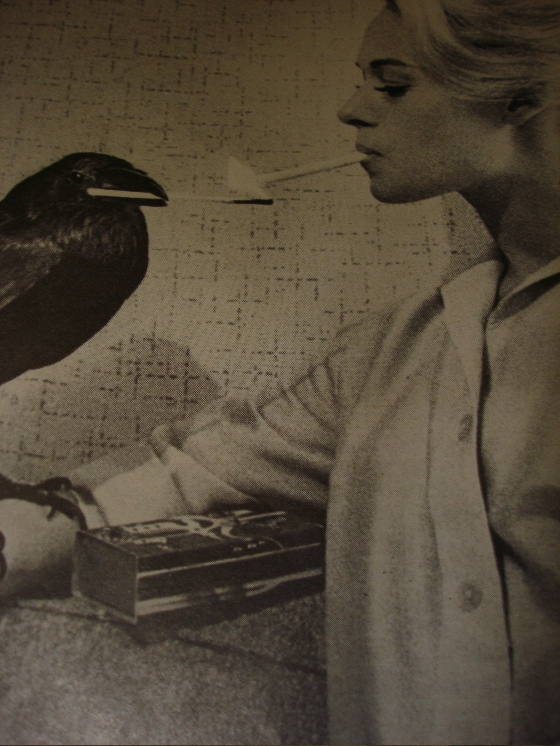Recently I've been in the grip of Hitchcock mania. He's one of
those artists whose work is so rich that you experience it completely
differently at different stages of your life. As a teenage film
buff I thought his work was delightfully cinematic but shallow.
Truffaut's book of interviews with the director got me to take him a
bit more seriously, but not for too long. I went through an extended
period when I thought of him as primarily a master of style.
Recently, however, I've re-watched almost every movie he ever made, and
the work opened up to me in a new way. Films I'd considered minor,
like The Birds, began to reveal their subversive depths, and films I'd greatly admired, like Vertigo,
began to take their place for me among the greatest achievements of
film art — indeed, among the greatest achievements of any art.
In the midst of this mania a package arrived from my friend PZ containing the copy of Look magazine pictured above, from 1962, the year PZ and I met, featuring some pre-publicity for The Birds. An object like this obliterates time — allows you to imagine The Birds
not as a famous classic from the past but as an enterprise in the
working life of a director, enmeshed in the practical contingencies of
filmmaking, which for Hitchcock always included close attention to
publicity.
In the article inside the magazine this image appears — another time
capsule, from an age when smoking was considered elegant and sexy:

Call me degenerate but it still looks elegant and sexy to me.
The art critic Dave Hickey once observed that it was hard to imagine
any culture being both risk-averse and sexy — and it's undeniably true
that American culture has become less sexy (though arguably more
pornographic) since the baby-boomer Yuppies took control of it.
Hitchcock's movies are sexier than movies today because he recognized
the connection between moral jeopardy and the erotic. In an
amoral society, or one that confines its most passionate moral concerns to areas
of personal health, the erotic simply vanishes.
If your soul isn't on the line in a sexual encounter, in any encounter,
you might as well
be playing ping pong. Hitchcock believed in souls, and knew that
souls are always in danger, always in jeopardy, always in
suspense. Leading a healthy lifestyle, practicing safe sex, or
safe ping pong, can't deliver you from this fact — however persuasively our culture argues otherwise.
